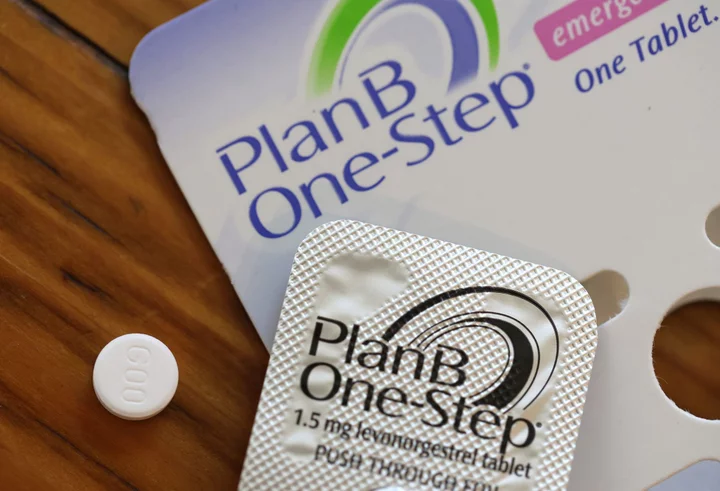Emergency contraceptive pills like Plan B are more effective when taken together with a common anti-inflammatory drug called piroxicam, a new study finds.
Combining piroxicam, typically used to treat arthritis, with levonorgestrel prevented roughly 30% more pregnancies than the emergency contraceptive taken by itself, according to research from the University of Hong Kong. The study was published Wednesday in The Lancet.
Studies indicate that levonorgestrel alone lowers the chances of pregnancy by as much as 89% when taken within three days of unprotected sex, but its real-world effectiveness is likely much lower. Experts are hopeful that the findings could help prevent more unwanted pregnancies.
“I’m really excited about this,” Kelly Cleland, the executive director of the American Society for Emergency Contraception, said in an interview. “I think there’s a lot of potential for this to help provide a more effective emergency contraceptive option, which we really need.”
Emergency contraception and birth control have become increasingly vital tools to prevent pregnancies as more US states put limits on abortion. A federal appeals court ruled Wednesday to restrict access to the abortion pill mifepristone, although it remains available under an April order from the US Supreme Court.
Read More: Abortion Pill Restrictions Center of Debate on Access, Yet Again
“In the US, where access to abortion is so limited, increasing people’s options to avoid pregnancy after unprotected sex has a huge role to play,”said Jennifer Kerns, a professor in the department of obstetrics, gynecology and reproductive sciences at the University of California, San Francisco. “Offering people options earlier in the timeline is critical.”
New Frontiers
The University of Hong Kong researchers said their clinical trial was the first to look at COX inhibitors, a type of anti-inflammatory medication, in combination with levonorgestrel to prevent pregnancies. Piroxicam is only available by prescription, but has a well-known safety profile and is routinely stocked at most pharmacies, experts say.
The study took place at the Family Planning Association of Hong Kong between 2018 and 2022. More than 800 women received levonorgestrel either with a placebo or with piroxicam within 72 hours of unprotected sex. There was only one pregnancy reported among the group that took the combination treatment and seven reported among the placebo group. Both groups experienced similar side effects: fatigue, nausea and lower abdominal pain.
Levonorgestrel, commonly referred to as the morning-after pill, is available over-the-counter and is used when other forms of birth control have failed. The drug mimics a hormone that suppresses ovulation and doesn’t work if ovulation has already occurred.
Some evidence has also suggested the pill may not be as reliable for people who weigh more than 165 pounds, which is slightly less than the average American woman. Certain medications may also lessen its effects.
The Hong Kong study used a relatively homogeneous patient population not reflective of the US demographics. Experts say further studies should work to better understand how piroxicam helps prevent ovulation.
“Any intervention that can move the needle a little bit in increasing efficacy of avoiding pregnancy, I think is really exciting,” said Kerns, from UCSF.









